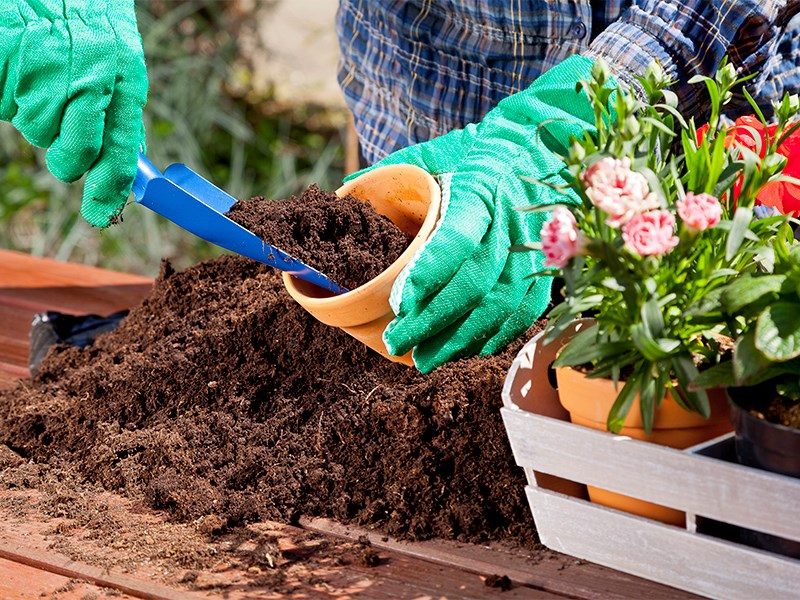Are your green thumbs starting to itch as you see the first signs of spring thaw? Have you already rushed out to your garden shed to assess what you might need to make this season's harvest abundant?
Chances are you had to wade through a pile of plastic pots, bags, buckets and tarps on your way. Fortunately, it is possible to reduce your garden's plastic footprint while protecting your soil from plastic pollution. We have uncovered some exciting, waste-reduced alternatives for your gardening needs.
1. Reuse pots when you are able to, or exchange items with a neighbour who no longer gardens. When pots begin to break apart, take them to any of the recycling depots in town for proper disposal. Curbside recycling also accepts plastic gardening pots and plants tags.
2. Explore making your own pots. You can use newspaper or raid your recycling box and find items useful as seeding trays. Plastic salad keepers make excellent seeding trays, as do egg cartons if you put them in a tray for water leakage.
3. Replace plastic yard bags with the readily available paper alternatives. Bring yard waste to Town Centre Recycling Depot if you are not composting at home.
4. Instead of using plastic sheets for weed suppression, use cardboard. Be sure to remove any tape or staples. A thick layer of leaves or wood chips also works well.
5. Make a greenhouse or cold frame out of materials you have on hand, rather than buying a new one. Glass or plastic bottles, windows with broken seals and bales of hay are all great resources for these projects.
6. Repurpose broken gardening items. Some fun upcycling projects exist for old garden hoses and rusty tools. A quick Google search will give you some creative inspiration.
Kick this spring off with some of these waste-reduced gardening projects and your plants will thank you for it.
Let’s Talk Trash is Powell River Regional District’s waste-management education program.



